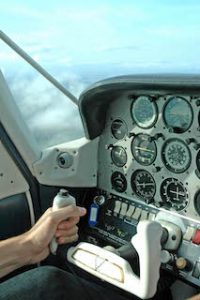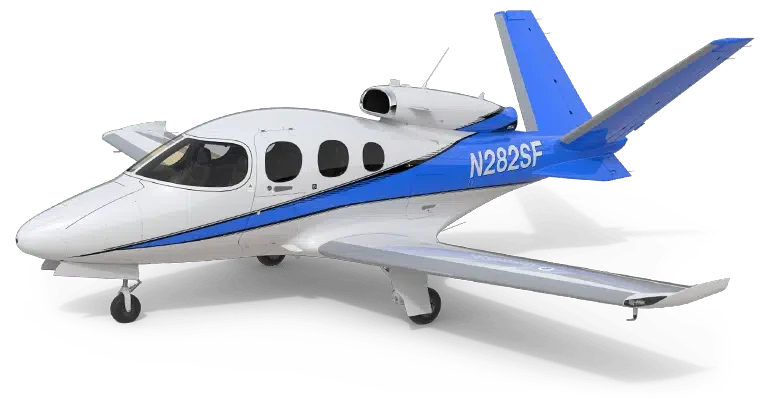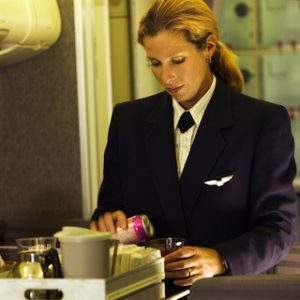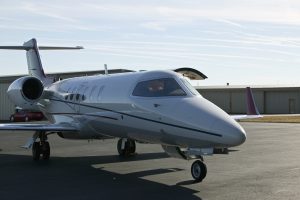How To Stand Out In The Airline Selection Process
 The path to securing employment with an international airline is both competitive and rigorous. Airlines evaluate candidates based on a wide array of criteria, each of which plays a critical role in determining who will ultimately be selected for the position. Among the key areas assessed are flying performance, interpersonal skills, aviation system knowledge, and adaptability to the airline’s culture. To stand out in this highly competitive environment, candidates must excel across all these areas. This article explores how Laminar Sim’s specialised courses are designed to equip pilots with the necessary skills and competencies to score highly in each phase of the selection process, thus maximising their chances of securing employment with a leading international airline.
The path to securing employment with an international airline is both competitive and rigorous. Airlines evaluate candidates based on a wide array of criteria, each of which plays a critical role in determining who will ultimately be selected for the position. Among the key areas assessed are flying performance, interpersonal skills, aviation system knowledge, and adaptability to the airline’s culture. To stand out in this highly competitive environment, candidates must excel across all these areas. This article explores how Laminar Sim’s specialised courses are designed to equip pilots with the necessary skills and competencies to score highly in each phase of the selection process, thus maximising their chances of securing employment with a leading international airline.
Importance of flying performance and jet handling
Mastery of jet handling skills
At the core of any pilot’s qualifications is their ability to handle a jet aircraft with precision and confidence. Flying performance, particularly in the context of jet handling, is a crucial criterion that airlines assess during the selection process. This involves not only the basic skills of controlling the aircraft but also the ability to manage complex flight scenarios, respond effectively to emergencies, and execute maneuvers with a high degree of accuracy.
Laminar Sim’s courses place a strong emphasis on developing these critical jet handling skills. Through advanced simulation training, pilots are exposed to a variety of scenarios that test their ability to manage the unique aerodynamic characteristics of jet transport aircraft. The courses are designed to enhance pilots’ proficiency in handling different flight phases, from takeoff and climb to cruising, descent, and landing. This comprehensive training ensures that pilots are not only technically competent but also confident in their ability to handle a jet under various conditions.
Enhancing flying performance through realistic simulations
One of the key strengths of Laminar Sim’s training programs is the use of state-of-the-art simulators that replicate the cockpit environment of modern jet transport aircraft. These simulators provide a realistic training experience that closely mirrors real-world flight conditions, allowing pilots to practice and refine their flying skills in a controlled environment.
The focus on realism in training helps pilots develop muscle memory and instinctive responses to different flight scenarios, which are critical for high performance in actual flight operations. By mastering these skills in a simulated environment, pilots are better prepared to demonstrate their flying performance during the airline selection process, ultimately earning higher scores in this crucial area.
Role of interpersonal skills in Multi-Crew Operations
Importance of Crew Resource Management
In the context of modern aviation, interpersonal skills are just as important as technical abilities. Pilots are expected to operate as part of a multi-crew environment, where effective communication, teamwork, and leadership are essential for safe and efficient flight operations. Airlines place a significant emphasis on these interpersonal skills during the selection process, as they are indicative of a pilot’s ability to work harmoniously with others in high-pressure situations.
Laminar Sim’s training programs include comprehensive instruction in Crew Resource Management, which is the foundation of effective multi-crew operations. CRM training at Laminar Sim focuses on developing the communication, decision-making, and teamwork skills that are vital for successful collaboration in the cockpit. Pilots learn how to manage interpersonal dynamics, resolve conflicts, and ensure that all crew members are working towards the common goal of a safe and successful flight.
Building strong interpersonal competencies
Effective communication and teamwork are critical in ensuring that the flight deck operates smoothly. Laminar Sim’s courses are designed to enhance these interpersonal competencies by simulating real-world scenarios where pilots must work together to solve complex problems and make critical decisions. This training not only prepares pilots for the practical aspects of multi-crew operations but also helps them develop the soft skills that are highly valued by airlines.
In the selection process, pilots who demonstrate strong interpersonal skills are more likely to earn higher scores in this area, giving them a competitive edge over other candidates. Laminar Sim’s focus on CRM ensures that pilots are well-prepared to excel in the multi-crew environment, which is a key factor in securing employment with an international airline.
Transport jet advantage
Understanding complex aircraft systems
In addition to flying performance and interpersonal skills, a deep understanding of aviation systems, particularly those specific to jet transport aircraft, is crucial for success in the airline selection process. Modern jet aircraft are equipped with advanced systems that require a high level of technical knowledge to operate and manage effectively. Airlines assess candidates’ proficiency in these systems as part of the selection process, making it essential for pilots to be well-versed in the technology and operations of jet transport aircraft.
Laminar Sim’s courses provide in-depth training on the various systems found in modern jet transport aircraft, including avionics, propulsion, electrical, and hydraulic systems. Pilots are taught how to manage these systems effectively, both under normal operating conditions and in the event of system failures or emergencies. This knowledge is critical not only for passing the technical assessments during the selection process but also for performing effectively as a pilot in the long term.
Bridging the knowledge gap
For many pilots transitioning from smaller aircraft or general aviation, there may be a significant knowledge gap when it comes to the systems and operations of larger jet transport aircraft. Laminar Sim’s training programs are specifically designed to bridge this gap by providing comprehensive instruction on the systems that are unique to jet transport operations. This training ensures that pilots are not only familiar with the technology but also confident in their ability to operate and troubleshoot these systems during flight.
By mastering the technical aspects of jet transport aircraft, pilots can achieve higher scores in the aviation system knowledge component of the selection process, increasing their competitiveness as candidates.
Adaptability and suitability to airline culture
Importance of cultural fit
In addition to technical and interpersonal skills, airlines place a strong emphasis on a candidate’s adaptability and suitability to their corporate culture. Each airline has its own unique culture, values, and operational philosophy, and it is essential for pilots to align with these aspects to succeed in their roles. During the selection process, airlines assess how well candidates are likely to fit into their organizational culture, which includes evaluating their attitudes, behaviors, and adaptability to different environments.
Laminar Sim recognizes the importance of cultural fit in the selection process and incorporates training elements that help pilots develop the adaptability and professional demeanor required by international airlines. The courses emphasize the importance of understanding and respecting diverse cultural practices, which is particularly important for pilots who will be operating in a global context. Pilots are also trained to be flexible and adaptable, qualities that are essential for thriving in the dynamic and often unpredictable environment of international aviation.
Preparing for a global aviation career
The global nature of the aviation industry means that pilots must be prepared to work with colleagues and passengers from diverse cultural backgrounds. Laminar Sim’s courses provide pilots with the skills and knowledge needed to navigate these cultural differences effectively, ensuring that they can adapt to the specific culture of any airline they join.
By focusing on adaptability and cultural awareness, Laminar Sim equips pilots with the competencies needed to score highly in this aspect of the selection process. Pilots who demonstrate a strong cultural fit are more likely to be seen as valuable assets to the airline, increasing their chances of being selected for employment.
Maximising your scores in the airline selection process
Cumulative scoring system
The selection process for international airlines typically involves a cumulative scoring system, where candidates are assessed across multiple criteria, including flying performance, interpersonal skills, aviation system knowledge, and cultural fit. The scores from each area are tallied, and candidates with the highest total scores are offered employment first. This scoring system means that excelling in one area can compensate for weaker performance in another, making it vital for candidates to maximize their scores in every aspect.
Laminar Sim’s training programs are specifically designed to help pilots achieve high scores across all areas of the selection process. By providing comprehensive training that covers all the key criteria, Laminar Sim ensures that pilots are well-prepared to perform at their best in every phase of the assessment. Whether it’s mastering jet handling, honing interpersonal skills, deepening aviation system knowledge, or developing adaptability, Laminar Sim equips pilots with the tools they need to succeed.
Standing out as a highly potential candidate
In a highly competitive selection process, standing out from other candidates is essential. Laminar Sim’s courses are designed to help pilots differentiate themselves by developing a well-rounded skill set that aligns with the expectations of international airlines. By excelling in all areas of the selection process, pilots increase their chances of being viewed as highly potential candidates—those who not only meet the minimum requirements but exceed them in multiple areas.
The focus on holistic training ensures that pilots are not only technically proficient but also well-rounded professionals who can contribute to the success of the airline. This comprehensive approach to training is what makes Laminar Sim graduates stand out in the selection process, ultimately leading to higher scores and better employment prospects.
Secure your employment now
Securing employment with an international airline requires more than just technical flying skills; it demands a well-rounded set of competencies that include interpersonal skills, aviation system knowledge, and adaptability to the airline’s culture. Laminar Sim’s pilot training courses are meticulously designed to equip pilots with these critical skills, ensuring that they can maximize their scores in the airline selection process. By focusing on creating the correct primacy and preparing pilots to excel in every aspect of the assessment, Laminar Sim helps candidates stand out as highly potential hires. This holistic approach to training not only enhances a pilot’s chances of securing employment with a leading international airline but also sets the stage for a successful and fulfilling career in aviation.









